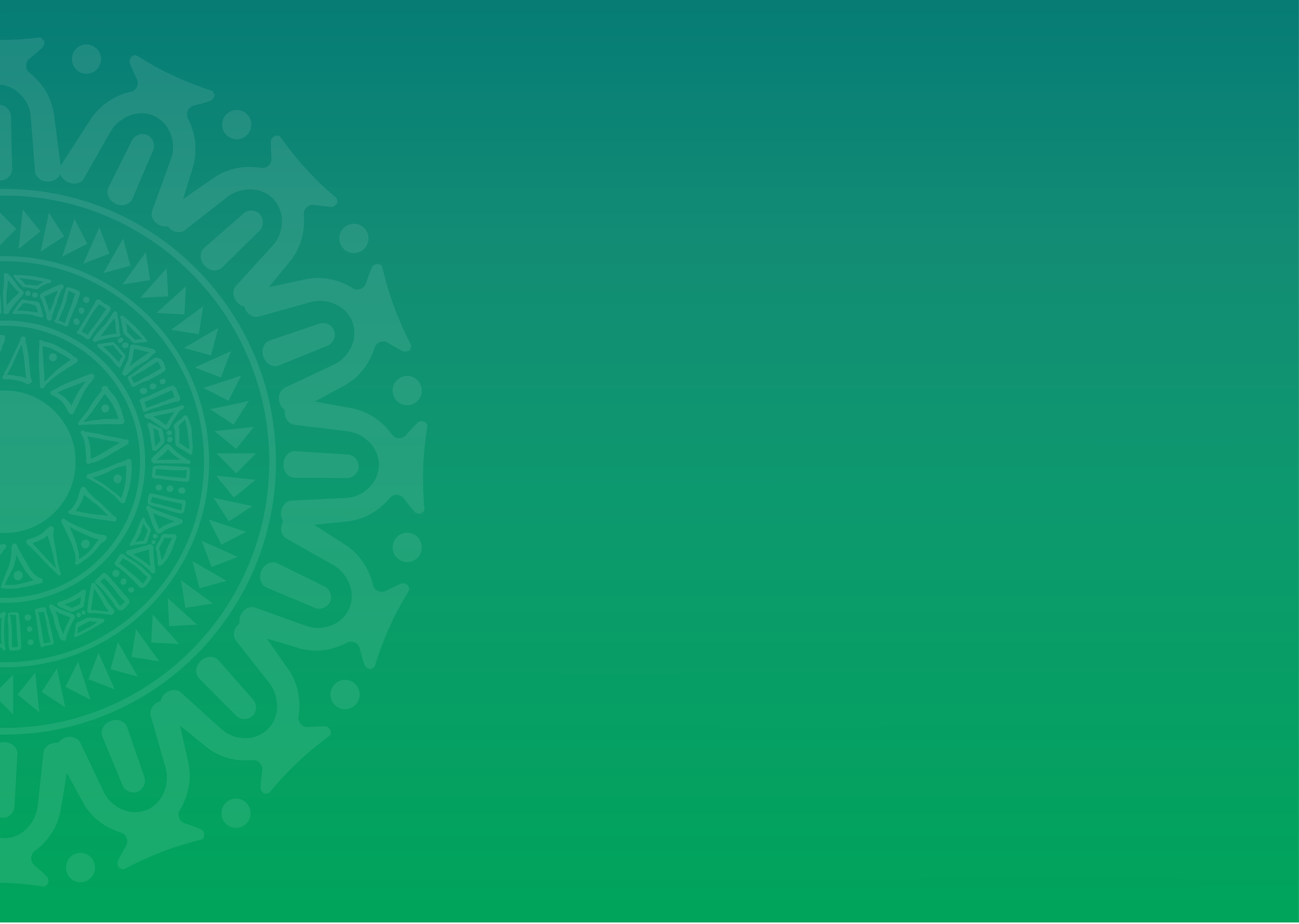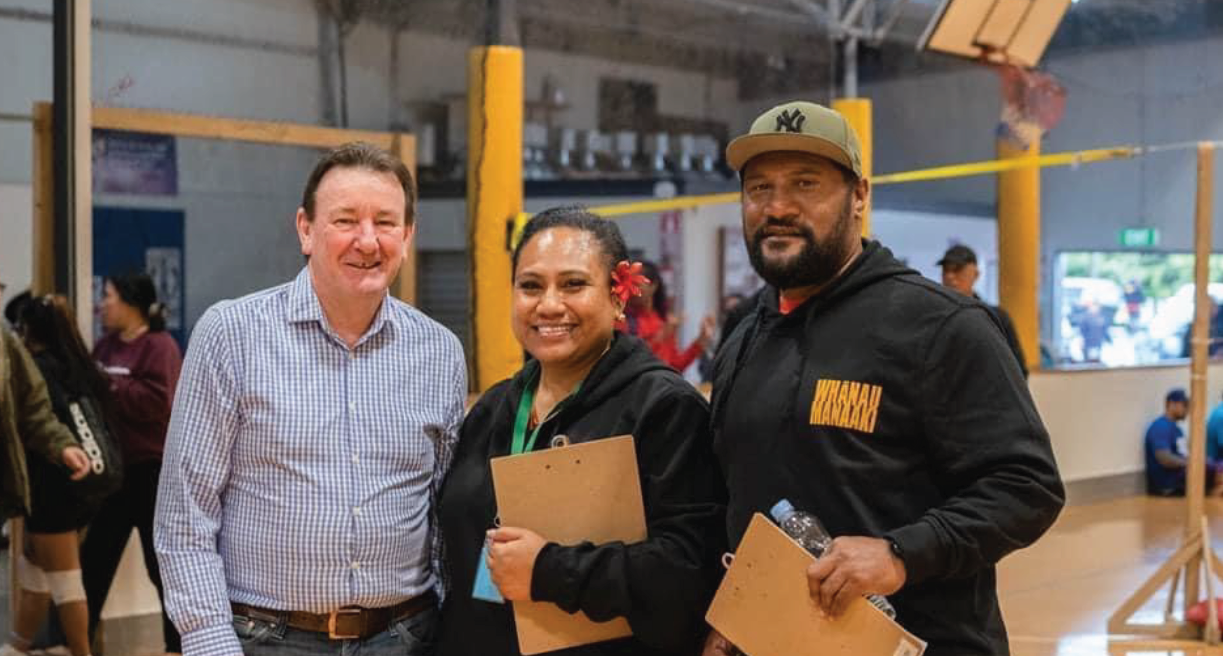
COMMUNITY WORK
We support our wider community to grow and prosper— organising health events, cultural workshops to empower individuals to reconnect with their heritage and community, housing support, career expos, emergency responses such as during Covid-19, and so much more.
We aim to deepen and develop that support in the years ahead to build stronger and more resilient communities.
At the heart of our approach are Pacific values – respect, love, family, relationships, spirituality, belonging, reciprocity, inclusion, tautua (service), and leadership – which guide our engagement with families and communities.
Our ability to deliver in any situation has been proven time and time again. During the COVID-19 pandemic, we demonstrated how quickly, efficiently and safely our systems and teams could mobilise to meet community need—distributing essential support with speed and cultural sensitivity. This experience reinforced our agility, with teams able to pivot and respond to urgent or emerging situations without compromising on care or connection.
Our flexible infrastructure, trusted relationships and values-driven workforce mean we are ready and capable to respond—whatever the situation calls for.
Piri’anga Alofa Pacific and Community Services is deeply embedded in the communities we serve for the last 15 years and continually to do so. Our strong local presence is built on long-standing relationships, cultural integrity and active collaboration with both formal and informal networks.
We have genuine and trusted people-to-people connections across our service areas, developed over years of walking alongside families, community leaders, churches, service providers and iwi. These connections are not transactional—they are built on vā (relational space), respect, reciprocity and shared aspirations.
Standing Together Through Lockdown
During the COVID-19 lockdown, our Navigators were on the ground, walking alongside our Pacific communities when it mattered most. From delivering food boxes and heaters to checking in on families and offering a listening ear, they were a lifeline for those doing it tough. It wasn’t just about supplies—it was about connection, care, and showing up with heart.
COVID-19 left our community more vulnerable than before, and too more isolated. To be able to make sure their needs were still being addressed, and beyond that, that they still felt connected to their community during such an unsure and critical time was essential, and it is representative to the hands-on and thorough care we provide.
In our video you can hear about how one of the important steps we took for our community during lockdown was delivering food vouchers to families in need - between 80 and 100 vouchers a day to families.
We understand to support children, this means supporting the whole of families, this means when providing emergency services we go beyond the basic care of one, and provide depth of care to entirety of families.
During the COVID-19 pandemic, our Navigators played a critical frontline role across the Hutt Valley, Porirua and Wellington regions—particularly in high-need communities such as Taita and Naenae.
We worked in close collaboration with Pacific and Māori Health Services (PHS), Family Start providers and local marae in the Hutt area to drive vaccination uptake, ensure food security and provide vital wellbeing support.
To meet the growing demand for food assistance, especially for families isolating with COVID-19, we established the Voluntary Army (VA) across Wellington, the Hutt Valley and Porirua. This initiative mobilised over 180 volunteers who helped shop for essential items, deliver hygiene packs and conduct welfare checks to identify any further support needs.
At the time, there were no Pacific-specific providers operating in these areas. However, through our strong and trusted community relationships, we were able to extend funding and services to Pacific families who might otherwise have missed out on critical support.
We delivered COVID-19 support to over 5,300 families within the Wellington region.
60% of the families we assisted in the Hutt area were Pacific
30% of the families we assisted in the Porirua area were Pacific
20% of the families we assisted in other areas of Wellington were Pacific.
We were the sole Pacific provider in the Kapiti, Horowhenua, and Otaki area during COVID-19.
We delivered 1,110 support packs where 80% of the recipients were Pacific.
Standing Together during COVID-19
Health and Sporting Events
Another initiative we started as part of our COVID response was to create events that incorporated healthcare. We have organised volleyball tournaments that for one encourage health through engaging together in a fun sporting event, but additionally at these events we also had services for health check-ups and vaccinations.
What is so important about these events is for one the easy and fun community-based healthcare without any barriers, that too spreads awareness in the community, but additionally it is a well-rounded source of care. It connects people with one another and allows them to get involved and engaged in their own health as well as within their community. It is a holistic approach that has proved to be very rewarding.
We have delivered three consecutive years of our Vaxx2Volley events, these are a unique volleyball based outreach for Pacific men and youth, combining health clinics with sport. The focus of these is; immunisation, outreach, awareness surrounding health, as well as being a fun community event.
We have lead Pacific Health and Wellbeing service at the most recent Horowhenua Pasifika Festival.
We have also held U-Matter events, which focus on men’s health and autism. These are delivered through sports based initiatives such as volleyball, golf, flag, and rugby, these events offer free health checks, screenings and vaccinations. For these events your ability to participate is conditional on completing health services, with full team disqualifications if members skip screenings - this ensures community uptake, and we have found these to be very successful events.
U Matter Volleyball Health Event
Volleyball Health Event
Health and Wellbeing stall at Horowhenua Pasifika Festival.
O A’u le Samoa
We run a O A’u le Samoa Programme, this is a holiday programme that connects people with Samoan culture, where they can learn and gain insight.
This is a course that we’ve run in partnership with Excel Pacific and Epiphany Pacific Trust.
It is a beginner’s course for those seeking to gain a basic understanding of Fa’asamoa, it provides learners with relevant information about the values and practices of Samoan culture and language, and beyond that it gives an understanding of how these are able to be applied to the lifestyles of those born and/or raised outside of Samoa.
The course’s outline:
Ava Ceremony
Valaau i le Laulau
Explanation of Fa'asamoa
Faiga o le Umu
Culture is an integral part of all of our lives, it is our understandings of ourselves, where we come, who we are, and the values we live our lives by. It provides a sense of belonging and identity, which is so important especially for growing children. This course allows people, particularly young people to reconnect with this deeply important sense of self, and gives connection to our community, it provides one with greater meaning than themselves and teaches how they incorporate this new knowledge within their lives practically, with that in mind this short programme can be invaluable and life changing to the people who take it.
O A’u le Samoa
Give Away Day
We hold Give Away Days, these days are an opportunity for people to come in and get some of the things they have been living without free of charge, this includes things like furniture, children’s items, clothing and much more.
At our Give Away Days we have pre-loved goods up for grabs: clothes, shoes, toys, household items and much more. We also have health services available such as; All Life Immunisations (Boostrix included), Children Immunisations.
Give Away Day
Y Men Programme
Initiated now a decade ago was our ‘Y Men’ programme. This was started as a push to get more young men working in Early Childhood Education, due to the at the time only 1.7% of teachers being male.
Figures from Ministry of Education show a wide gap between the number of male and female teachers in early childhood education in New Zealand - 321 out of 18,856 teachers, or 1.7 per cent, are male.
Having male role models and teachers is something that can be hugely important in a child’s life, children spend a great deal of their weeks in kindergarten and school, to only have female teachers means they are missing that important male influence.
From 2015 - 2016 we had 32 men placed in four groups over the year, each with a placement of six months in a kindergarten in the Wellington region so they could see if early childhood education was something they would want to pursue.
The men who were young men who were unemployed, this provided them not only work experience, but for some of these men they found their calling.
Going into the sector wasn't something Anaru Jones thought of until last summer, when his younger brother Motunga, 4, lost his hearing after a bout of meningitis.
He was given an allowance from Work and Income to go to Tui Park to help Motunga every day and although his brother was his focus, he soon discovered that early childhood teaching was for him.
“I love kids and my family and friends have always said I'm good with them,” he said.
“I was there [at Tui Park Kindergarten] to look after Motu, but whenever I'd turn up, I'd get hugs from all the other kids.”
“It was a nice feeling and the teachers there really encouraged me to put my name forward for the Y-men programme.”
Jones spends four days a week at Tui Park - where Motunga now vies for his big brother's attention - and one day a fortnight at Whanau Maanaki in Porirua, talking about his challenges and experiences, getting advice and studying for a national certificate in business.
The Education Ministry's acting deputy secretary for early learning and student achievement, Karl Le Quesne, commended the proactive approach of Piri’anga Alofa and said the teachers from the programme were valued in the communities where they taught. “The number of male teachers [in this industry] is increasing, but numbers remain low,” he said.
The senior teacher overseeing the Y-Men programme, Helen Smithies, said about a third of the 32 men were looking at further careers in early childhood teaching. “These young men are being given an opportunity,” she said. “We don't expect them to all become teachers, but the hope is they can fulfil potential we know they have, they are great in kindergartens because the kids, some of whom don't have father figures, adore them and they offer a different lens on teaching than women."


